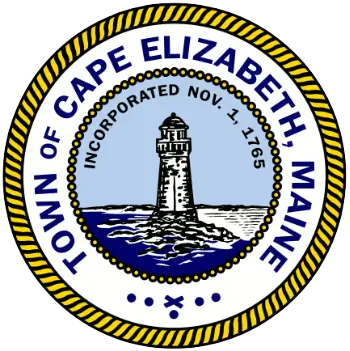Published on June 21, 2022

On June 13, 2022 the Town Council approved referring to the Ordinance Committee the development of ordinance amendments that will implement the State of Maine Legislature LD 2003. The bill, passed by the legislature in April and signed into law by Governor Janet Mills on April 27, 2022, expands the ability to build multi-unit properties in certain residential zones by loosening zoning restrictions in an effort to increasing affordable housing units statewide. The law requires that ordinances be amended by July 1, 2023.
Given that ordinance amendments typically take six months to a year, Chair Jeremy Gabrielson said, “That it seems prudent to get started on this now,” and suggested that the ordinance amendments be sent to the Ordinance Committee initially, “So that they can perform a review of the ordinance and flag any areas within the ordinance where we need to consider revisions to be in line with this [LD 2003].” Gabrielson noted that this work would be conducted in parallel with the ad-hoc Housing Diversity Study Committee’s work and anticipated, “There would probably be some interplay with the committee.” In addition, Gabrielson pointed out that the regular process for changes to land use ordinance requires that public hearings be held by both the Planning Board and Town Council.
Councilor Susan Gillis asked for clarification on how the upcoming November referendum on the Citizen Petition to repeal the Town Center Affordable Housing Amendments might impact the process and the timing of the Ordinance Committee’s review. Town Planner Maureen O’Meara provided, “It is not unusual for there to be multiple zoning amendments in the pipeline at the same time. This [ordinance changes required by LD 2003] will likely not be voted on by the council until this time next year; whereas with the referendum, you will know the day after the election in November where the zoning is. Regardless if the referendum passes or fails, whatever the status is of the ordinance that day after the election is what we then use these regulations to further amend.” Furthermore, “The state law explicitly defines the 2.5 x density for projects that are 100% affordable and the amendment that the town passed was 80% affordable. So, they don’t actually overlap; if the referendum fails and the Town Center Affordable Housing Amendments become law, they will sit side by side,” O’Meara said.
Councilor Timothy Reiniger suggested that a workshop be held first with the town attorney present. Reiniger said, “I think the citizens of the town need to be fully alerted and educated to the ramifications; this goes way beyond just a few technical changes to accessory dwelling units and there are complex legal issues that could be disagreed upon based on the interpretation of the way it is worded.” “I think it would behoove us to table this and take time to have the workshop first to have full knowledge of all the policy issues; the policy issues will be determined by us, not the planning board,” Reiniger added. Councilor Nicole Boucher said, “Before I or the public hear from the attorney, we really need to do that gap analysis of what is the state law and what ours currently says,” in order to understand if something is a small or significant change.
Councilor Penny Jordan agreed, “A ‘gap analysis’ first would be helpful; whether it was the Ordinance Committee or anther committee, we could get some baseline work done and then pull everyone in to work together as we assess that gap analysis.” Gabrielson agreed with Jordan and Reiniger by saying, “As with any amendment to our land use ordinance, there is always a legal review process. Given what is involved with this, having this sooner in the process than we typically do, makes sense.” However, Gabrielson continued, “What I would like to do is to give the Ordinance Committee a few months to look through our ordinance and the state law to come up with that gap analysis; that would give us a much more informed basis to have the conversation either with our own attorney or another attorney who may be more familiar with land-use law.”
Reiniger made a motion to table the motion, pending a workshop; Gillis seconded. The motion failed with a vote of 2 to 5. The original motion to refer the development of ordinance amendments to the Ordinance Committee, made by Jordan and seconded by Boucher, passed with a vote of 5 to 2.
